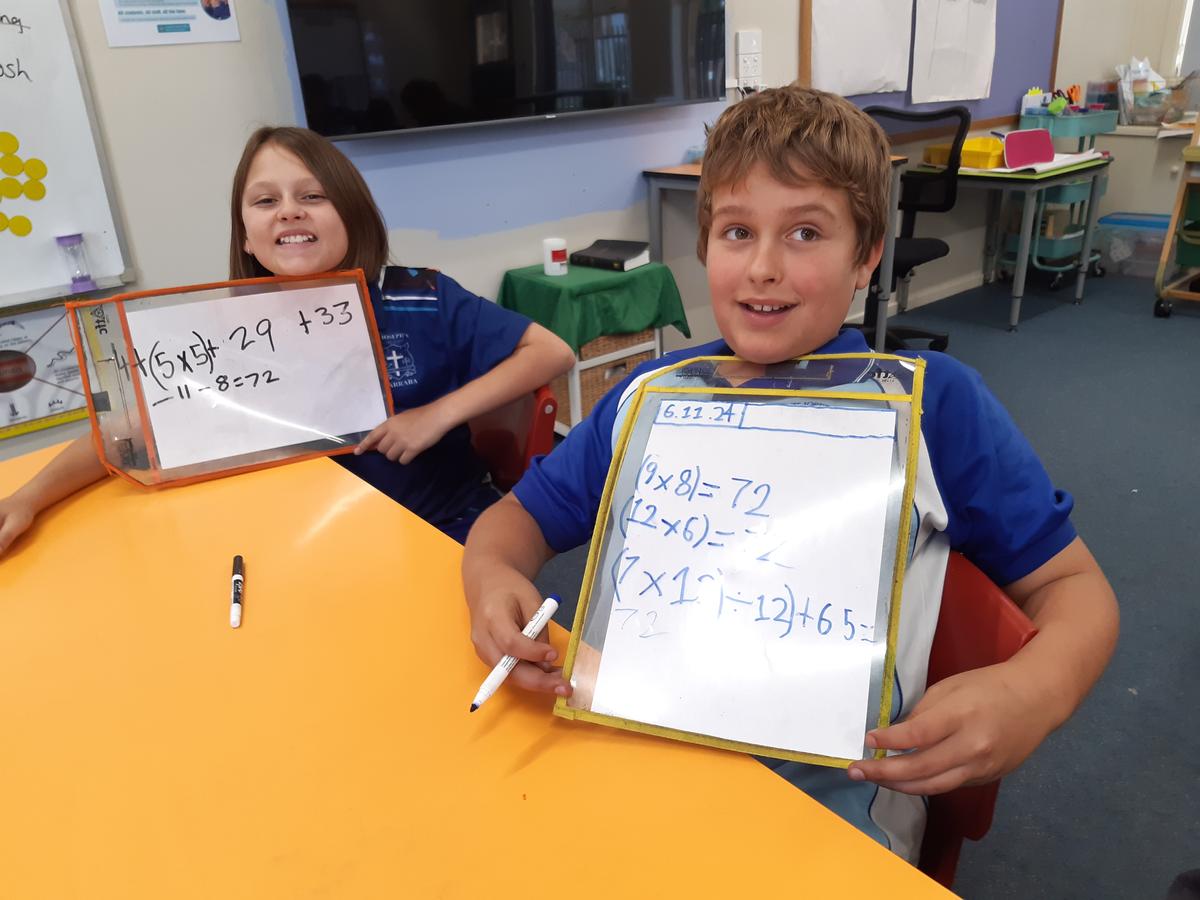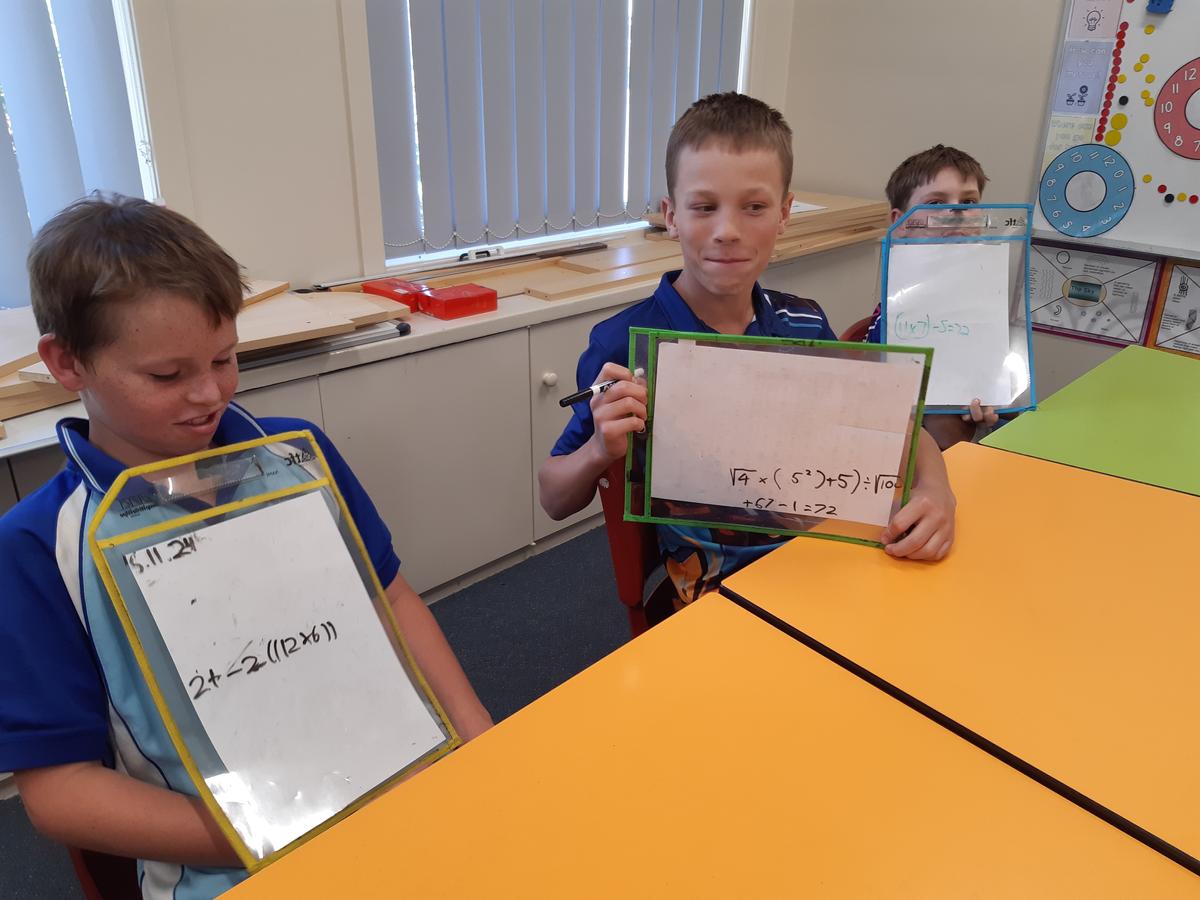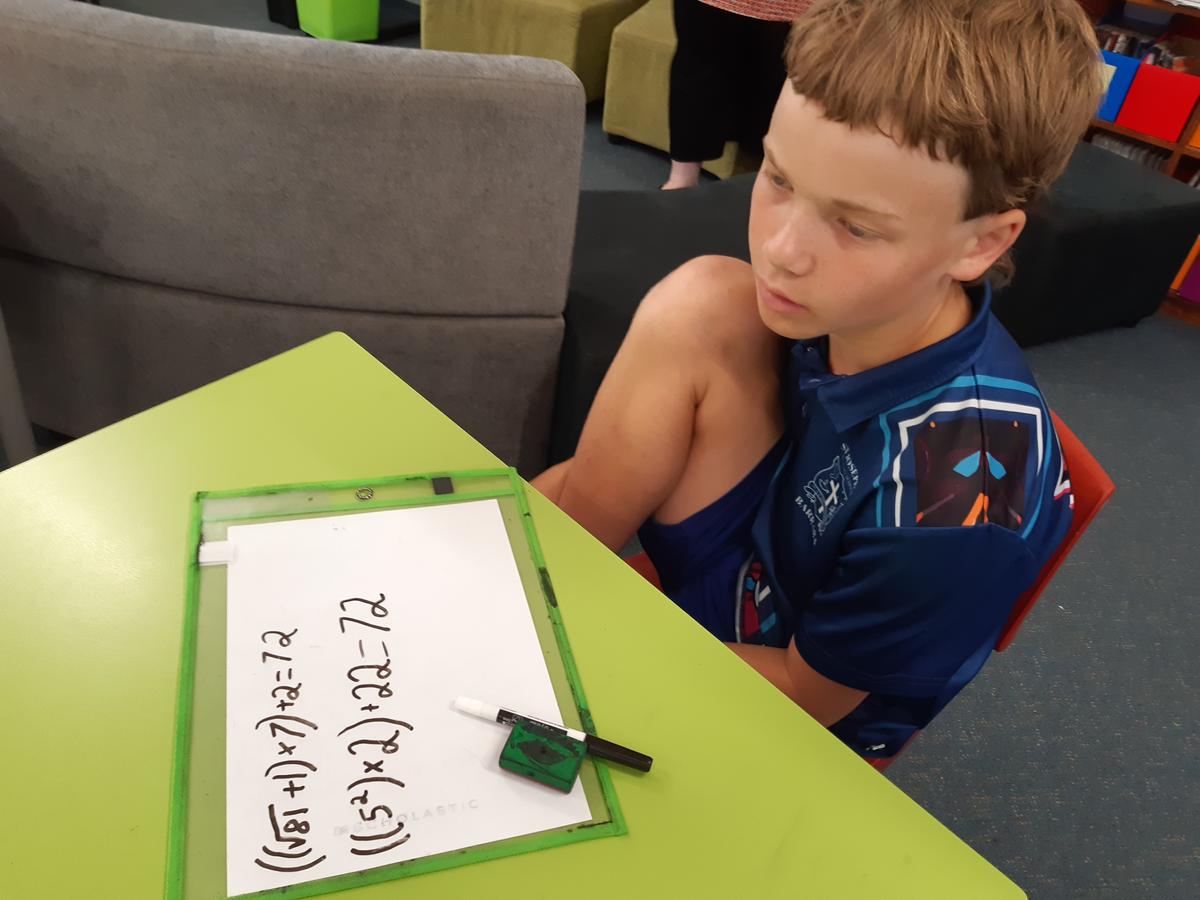Learning News 4/5/6
Mrs Amy Phillips

Learning News 4/5/6
Mrs Amy Phillips
4/5/6
We’ve kept our focus on poetry in writing and have now learned about different types of poems, like haikus, acrostic and limericks. In addition to studying these forms, we’ve learned about different literary devices—such as metaphor, simile, alliteration, rhyme, and allusion—that can enhance the imagery and emotional impact of our poems. By understanding these devices, we are also learning how to apply them to other forms of writing.
Each student entered a poem in the Barraba Town Clock Centenary Poetry Competition, where they had the chance to show what they’d learned in our lessons. In their poems about the clock, they used skills like choosing descriptive words and creating rhymes, making each poem special and creative.
Some very humorous limericks, shown below, were independently written by the students.
There once was a man from Ireland,
Who wanted to live on a warm island.
He ended up in Norway,
So from home he was far away,
And eventually moved to Thailand.
By Archie Johnston
There once was a cat who ate food,
Then went outside and pooed.
It smelled quite funny,
He must’ve had a bad tummy—
The next day, he was in a bad mood.
By Makenna Griffiths
My dog is named Bella,
She’s a cheeky little fella.
She likes to bite,
All day and night—
I wish Bella would stay under my umbrella!
By Grace Phillips


Geography
In Geography this term, Years 4/5/6 are continuing their study of environmental influences and the management of the Australian environment, with a focus on natural disasters. Mrs. Russell has assigned a research project on a chosen natural disaster, which students can work on at home if they wish. The project details are available in Google Classroom, and it is due in Week 7.
3/4/5/6 PDH
During PDH lessons, the class is learning about healthy lifestyles, in particular, healthy eating. This week, they participated in a food label challenge, where they examined a variety of food packages to understand the information provided on each label. Students practiced deciphering ingredients, nutritional information, and health claims, discussing what each part meant and how it related to making healthy choices.
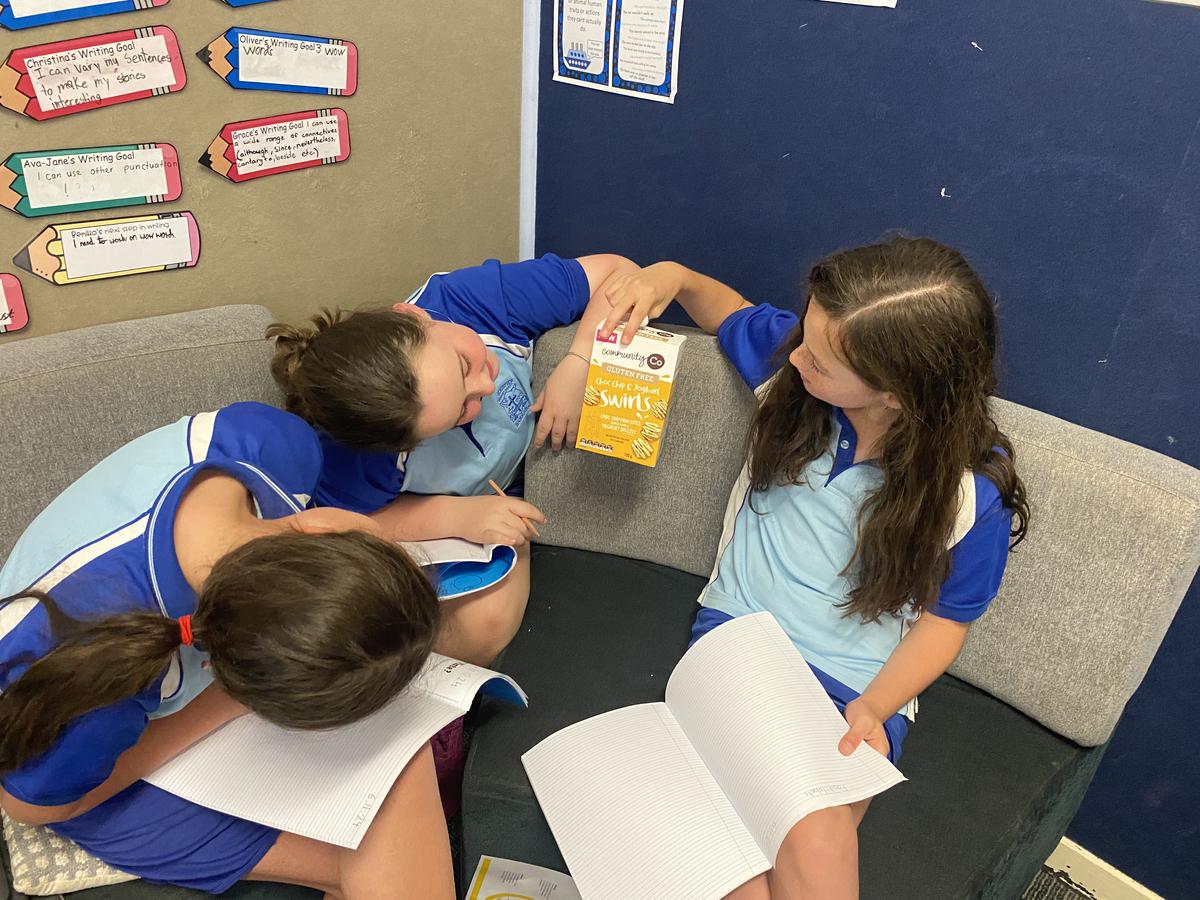
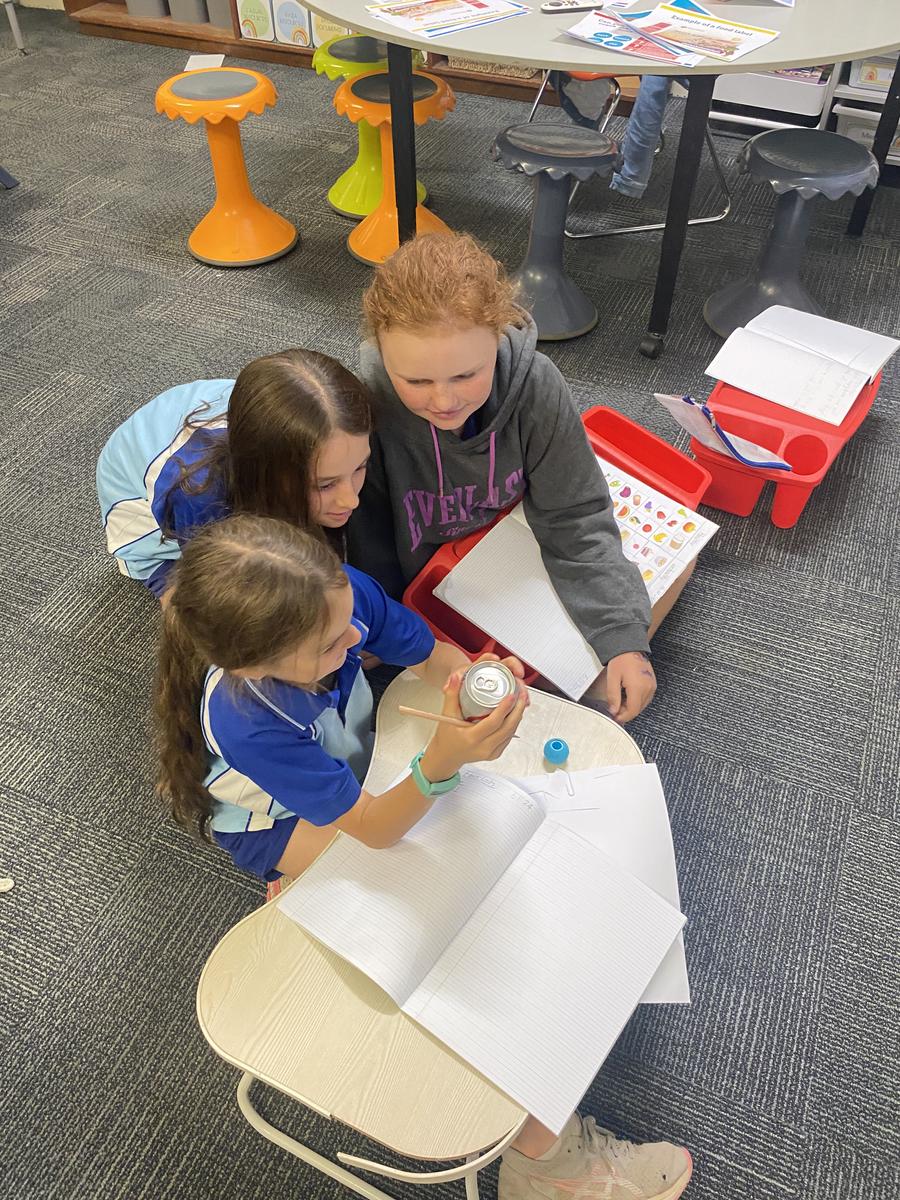
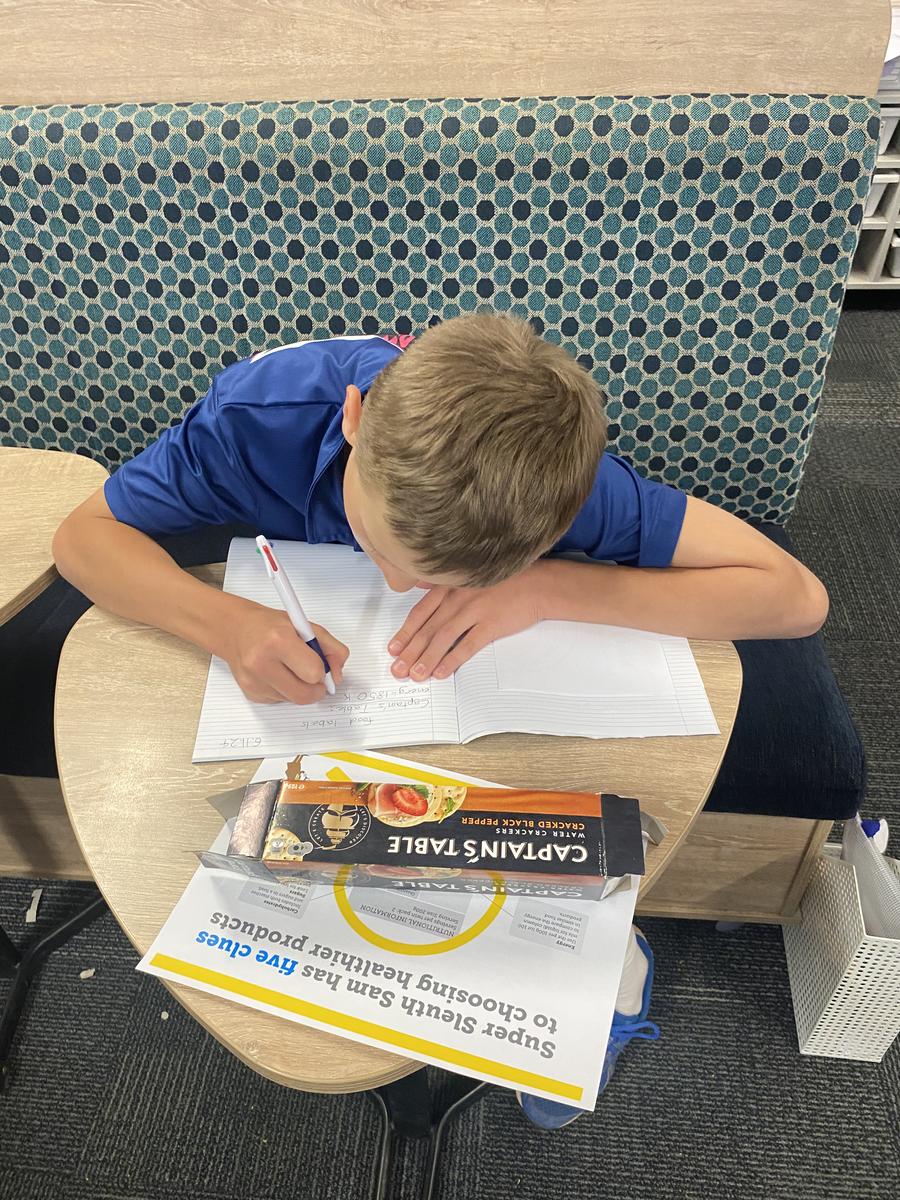
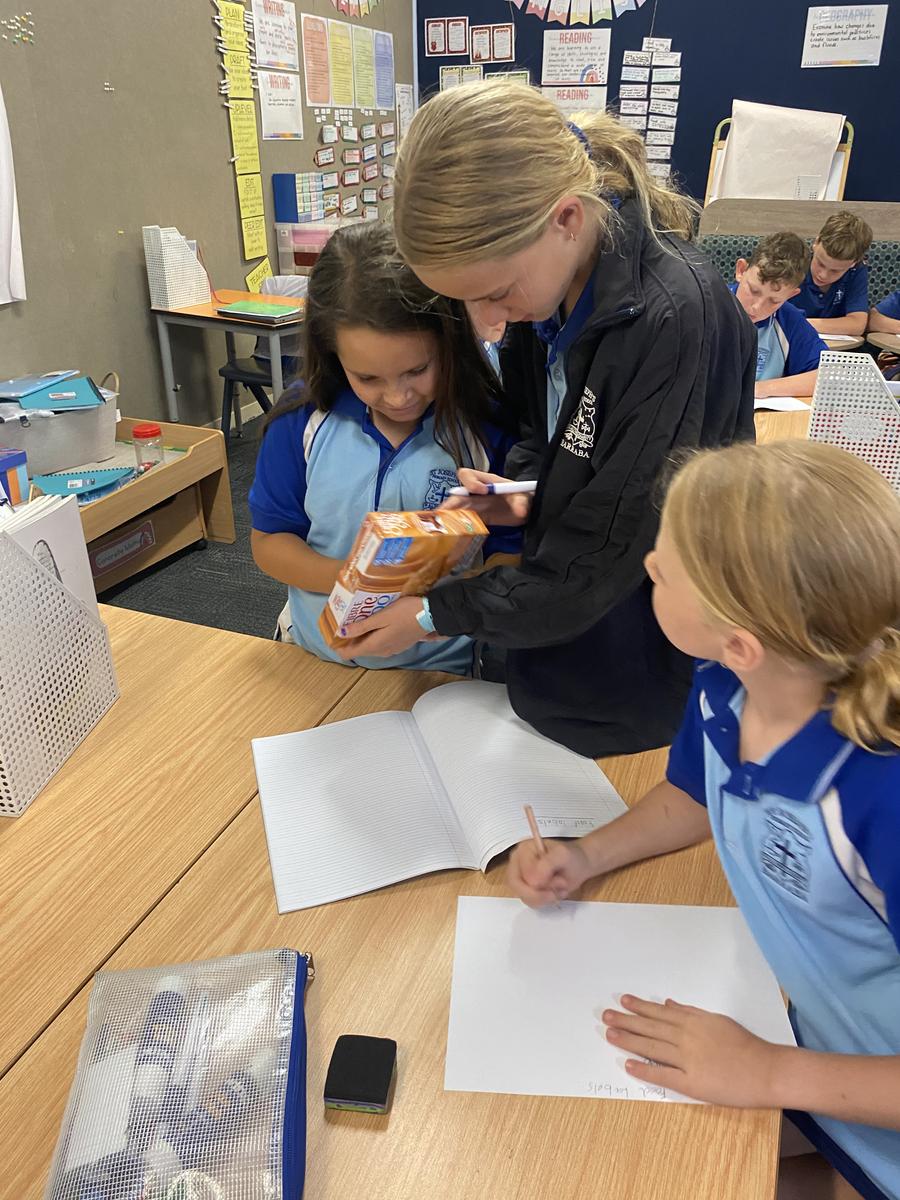
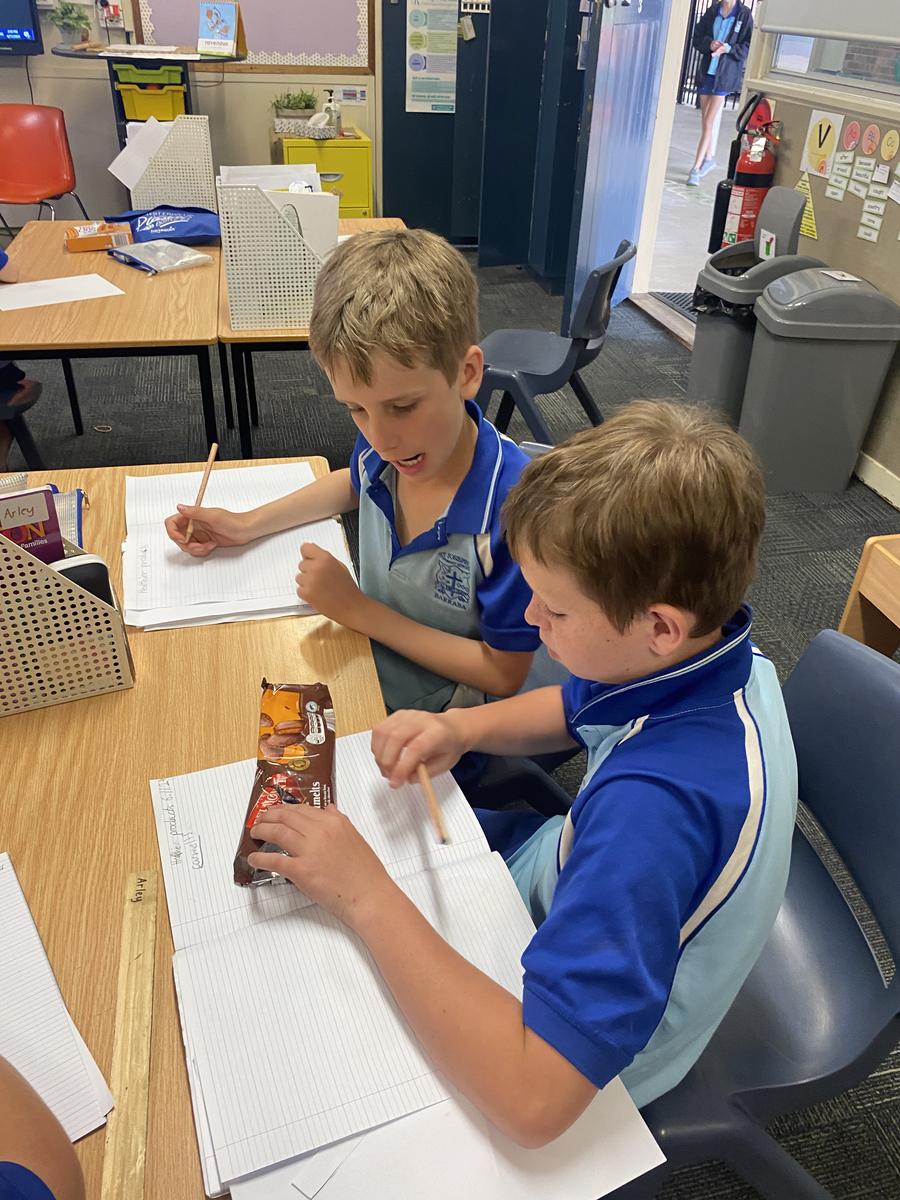
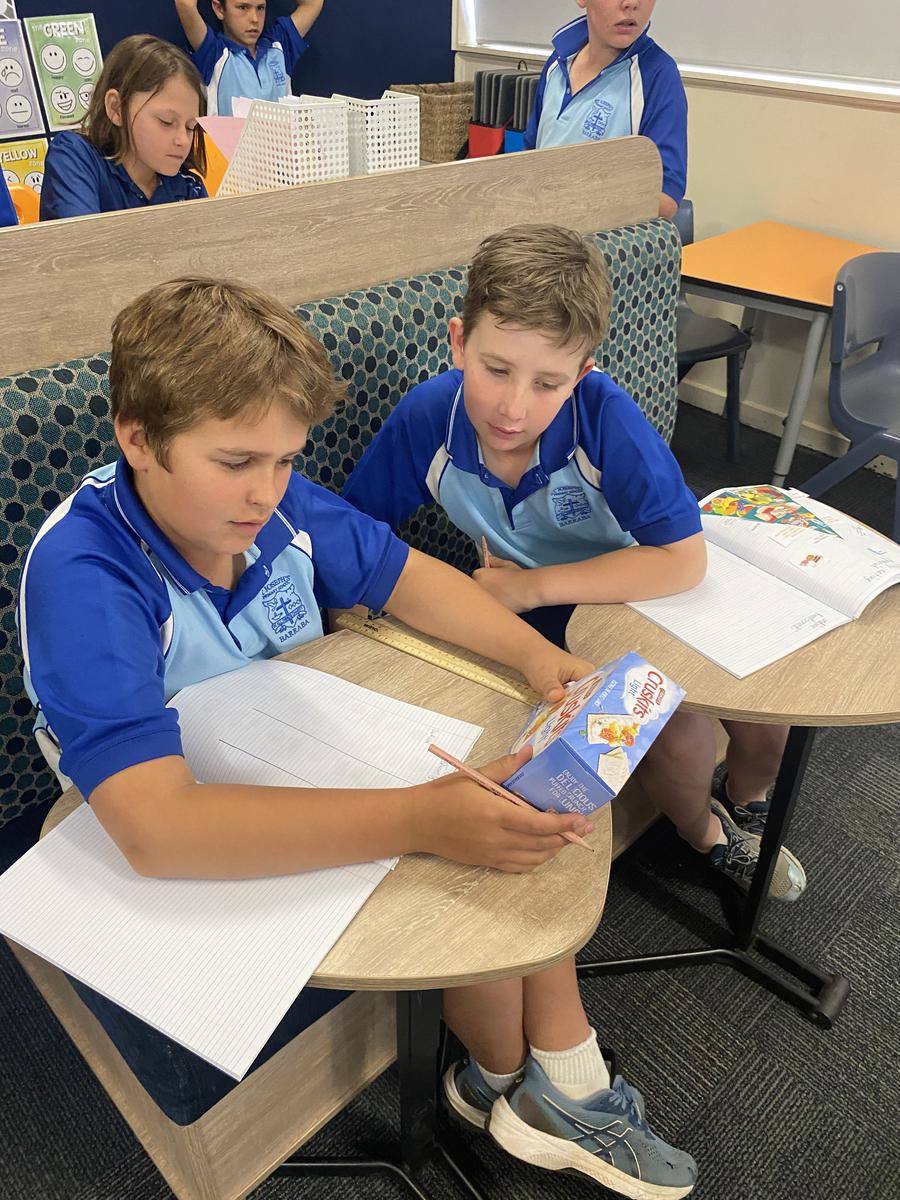






Stage 3 Maths
The last two weeks have tested our knowledge of the order of operations in number sentences, with a focus on multiplicative relations. Students have explored the importance of brackets [{(and even multiple brackets!)}], learned about the square root function and have been challenged to come up with ways to deal with 'remainders' in real world problems.
We decided that we can't always ignore remainders, especially if we are trying to divide the population of students into a certain number of buses (no matter what, we can't leave them behind!), that maybe we can cut the three remaining slices of cake into fractions and share smaller ones, that our decimal money system allows for remainders by using cents rather than dollars, and that sometimes the spare cow that didn't fit on the truck needs to stay on the farm until the next load!
